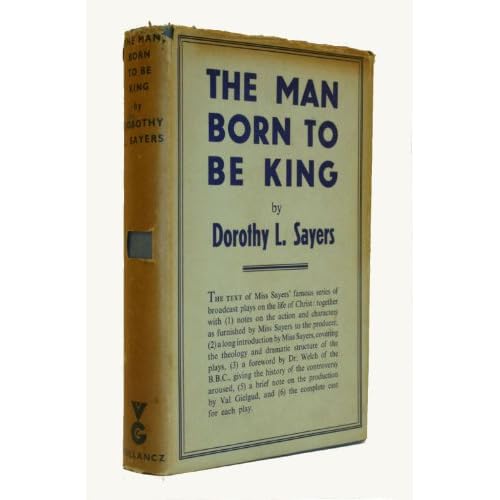The royal wedding was beautiful. It brought an unexpected tear to my eye as I was reminded of the greater future wedding of the once and future King, when every eye will see him. (Broadcast entirely funded by the Father, freeview.)
The guest list is set, though we're still waiting for everyone to arrive - coming from far more countries than the Commonwealth. It's all been catered for. The choir's booked, the anthem written, and the processional fanfare has some marvellous words. People have been lining the streets waiting for a long time. It's no secret what we'll be wearing - it's been provided by the Father of the groom!
I was so disappointed that the sermon at William and Catherine's wedding contained so much truth, but didn't point to Christ. It began well: 'You have chosen to be married in the sight of a generous God, who so loved the world, that he gave himself to us in his Son.' But the general sentiment of the address seemed to be that with God's help we all evolve spiritually into the creation of the better world to which we look forward. The speaker missed why we need a self-giving God - not just as an example for marriage, but that we can't bring about a better world with just a bit of divine help. That's why Jesus died, rose and is coming again.
Hint: you know there's something skewed about a wedding address if Jesus' redemption of his bride,
and return to consummate his new creation, is lacking. (Actually, you know there's a lot wrong with any Christian sermon if Jesus and his finished redeeming work is conspicuously absent.)
We had the good of marriage upheld, but none of the beauty of Christ, and there's something very wrong about that.
Husbands, love your wives, as Christ loved the church and gave himself up for her, that he might sanctify her, having cleansed her by the washing of water with the word, so that he might present the church to himself in splendour, without spot or wrinkle or any such thing, that she might be holy and without blemish. In the same way husbands should love their wives as their own bodies. He who loves his wife loves himself. For no one ever hated his own flesh, but nourishes and cherishes it, just as Christ does the church, because we are members of his body. “Therefore a man shall leave his father and mother and hold fast to his wife, and the two shall become one flesh.” This mystery is profound, and I am saying that it refers to Christ and the church. However, let each one of you love his wife as himself, and let the wife see that she respects her husband. [Eph.5.25-33]
For the good of the married couple; for the blessing of every one of the x million listeners, viewers and those attending; they should have been told that it's not ultimately about them.
- That although this day is for celebrating their union, it points to the union of Christ and his bride.
- That although Prince William is, we trust, a future king, he is eclipsed in every way by the King of kings, Jesus.
- That while Catherine was beautifully radiant in her dress, the betrothed of Christ is going to be spotless and peerless.
- They have vowed to be united, 'Until death us do part,' yet there is a greater promise, which defeated death.
- While they are caught up into each other's presence, the royal family, and the palace, there is a better presence, a greater family, and a palace beyond all imagining.
Then I saw a new heaven and a new earth, for the first heaven and the first earth had passed away, and the sea was no more. And I saw the holy city, new Jerusalem, coming down out of heaven from God, prepared as a bride adorned for her husband. And I heard a loud voice from the throne saying, “Behold, the dwelling place of God is with man. He will dwell with them, and they will be his people, and God himself will be with them as their God. He will wipe away every tear from their eyes, and death shall be no more, neither shall there be mourning, nor crying, nor pain any more, for the former things have passed away.” [Rev.21.1-4]
The crowds lining the roads merely to cheer, indicated how much we want to participate in such a glorious event. Far more can we look forward to participating gloriously in the Wedding of all history. Just make sure you don't ignore, forget or slight the invitation - or think you can get in on your own merits.
With words of Luther:
Christ, that rich and pious husband, takes as a wife a needy and impious harlot, redeeming her from all her evils and supplying her with all his good things. It is impossible now that her sins should destroy her, since they have been laid upon Christ and swallowed up in him, and since she has in her husband Christ a righteousness which she may claim as her own, and which she can set up with confidence against all her sins, against death and hell, saying, "If I have sinned, my Christ, in whom I believe, has not sinned; all mine is his, and all his is mine," as it is written, "My beloved is mine, and I am his" (Cant. ii. 16).


















